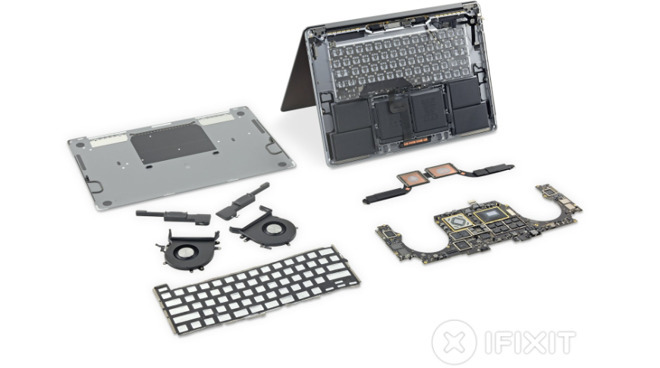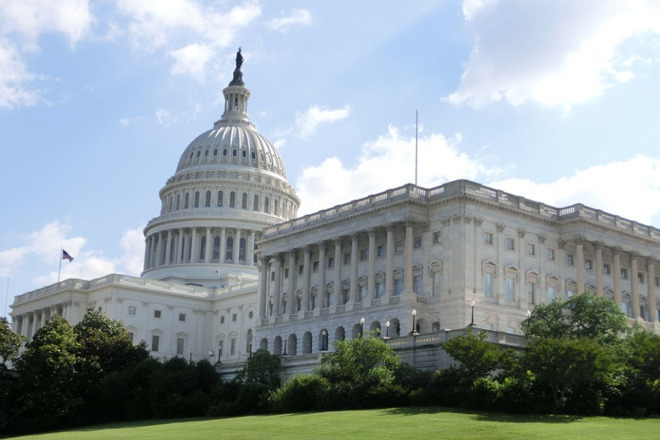During a US congressional probe, Apple on Wednesday revealed that the costs to operate its various repair programs have exceeded the revenues generated by those services for roughly a decade now, and went on to defended how it may refuse to service devices in certain situations.
Starting in July this year, Apple, along with other technology firms including Google, Facebook, and Amazon, responded to an US House of Representatives Judiciary Committee probe into anti-competitive practices. Apple's written answers have now been released, and include specific details about the company's repair policies.
The Committee asked for information dating from 2009 to the present day, including how many repair technicians Apple employs, and the "total revenue that Apple derived from repair services.
"There are tens of thousands of Apple-authorized repair technicians working at Apple Retail Stores and third-party retailers," replied Apple in the testimony.
"For each year since 2009," it continued, "the costs of providing repair services has exceeded the revenue generated by repairs."
The Committee's prepared questions then required Apple to account for what repairs its network of Apple Authorized Service Providers (AASPs) was allowed to make — and what work, if any, it refuses to allow these firms to do.
"AASPs are permitted to conduct exactly the same repairs (both type of repair and type of product) that Apple's Retail Store staff are permitted to conduct," replied Apple.
"For more complicated repairs that cannot be handled at stores (at Genius Bars and at AASP store locations), both Apple Retail Store and AASP technicians can mail the units for repair to the nearest Apple Repair Center," it continued.
The Committee's questioning then asked about the situation where a customer gets an unauthorized repair and Apple later refuses to service the machine.
"Apple would not refuse repair services to that customer in the future," insisted the company. "For example, Apple does not automatically reject service for a device that show attempts by third parties to perform repairs."
"Similarly, the presence of non-Apple genuine components that are designed to mimic the function of Apple genuine components," Apple continued, "even if those components infringe on Apple's intellectual property, does not automatically make the device ineligible for service by Apple."
Apple's responses did, however, specify that there are situations where it would refuse to repair a customer's device.
Devices in which certain original components, such as the main logic board and enclosure, have been replaced with non-original components. This is due to the fact that to replace these components the device has to be disassembled to a point that special tooling and processes are required to reassemble the device. Attempting to reassemble devices disassembled to this state without using proper Apple tools and processes may result in the issue the customer has reported.- When a device has been disassembled to a point that special tooling and processes are required to reassemble the device.
-When an Apple genuine component is replaced with a counterfeit component designed to look like an Apple genuine component, but not designed to function (e.g., fake speaker or camera modules).
-When a device is beyond economic repair such that repairing the device would result in greater cost to the customer than replacing the device.
-Devices that are missing components.
-Devices with intentional tampering designed to defraud Apple.
As well as performing repairs, companies require the ability to buy genuine Apple replacement parts and the Committee asked when Apple refuses to sell to them.
Apple said that it had an Independent Repair Provider program which companies apply to join. The only eligibility criteria that Apple revealed in its answers was that it requires the company to have "at least one trained technician" to do the repairs.
It also will only sell parts to businesses, including sole traders, not to individuals such as consumers. It does so as part of its "Apple Genuine Parts Repair" program, which does place some restrictions on what can be performed in a repair, but fewer than those imposed on stores deemed an Apple Authorised Service Center.
"Repairs performed by individuals, who are more likely to be untrained technicians, increases the likelihood that repairs will not follow proper safety and repair procedures and could result in improper function, product quality issues or safety events," concluded Apple, echoing comments made in April over consumer safety in its fight over the "Right to Repair."
 Apple says some repair work requires precision tools and processes. (Photo of 16-inch MacBook Pro components: iFixit)
Apple says some repair work requires precision tools and processes. (Photo of 16-inch MacBook Pro components: iFixit)While the Committee was specifically investigating whether companies use anti-competitive measures in repairs, and other areas, Apple has regularly been criticized for how hard it is to service its devices. CBC made some questionable comments on serviceability and repair, but it's also correct that the new 16-inch MacBook Pro is is difficult to repair..
Apple's full answers, including details of its work with Apple Maps, can be read on the US House of Representatives Judiciary Committee's official site.
 William Gallagher
William Gallagher







-m.jpg)






 Charles Martin
Charles Martin
 Christine McKee
Christine McKee
 Wesley Hilliard
Wesley Hilliard
 Malcolm Owen
Malcolm Owen
 Andrew Orr
Andrew Orr

 Sponsored Content
Sponsored Content








41 Comments
I know this will be a sore topic for certain people and I hope my comment doesn't derail this thread, but there are very few moving or easily breakable parts on the Mac notebook so being impossible for anyone—even Apple—to replace a keyboard without disassembling the entire machine and having to replace the top cover has always seemed like a bad move for their bottom line from the standpoint of repairs.
Well if that doesn’t scream failed design... Funny that it coincides with 10 years of ‘ZERO’ from ifixit.
I can tell you what apple wrote is similar to my experience with them on very few repairs I dealt with. I took in my daughter phone to get the battery replaced after she had it replaced with a non apple battery. We attempted to get the $29 replacement deal they were offering, they did their test said it did not have an apple battery so it was not eligible for the $29 replacement, but they would be happy to replace it for the full cost since the Phone was long out of warranty and it was not a Apple Battery.
The biggest complaints I hear from people are mostly related to people who some how abused the phone (when challenged on this fact, they deny or say the phone should be able to take it). People think they can do want every them want to their expensive electronics and when it breaks the manufacturer should fix it at no cost to them. I know in the past Apple's policy was very liberal on repairs and people took advantage of this and Apple cracked down and now people are pissed.
The only way I can see Apple "losing" money on their repair program is by including products under the original one-year guarantee. AppleCare is obviously a profit center, just as nearly all extended warranty programs are. If it wasn't they wouldn't be pushing them. Why willingly repair at a loss unless required by the original one-year free warranty that came with the device purchase. AppleCare is meant to profit, just as I believe out-of-warranty repairs are.